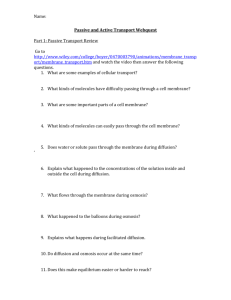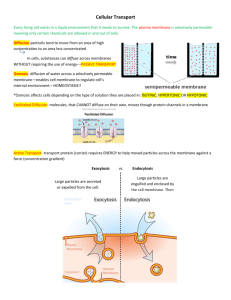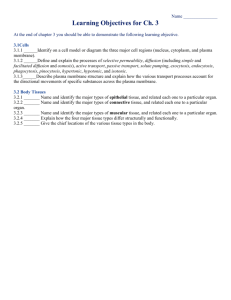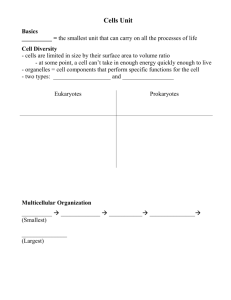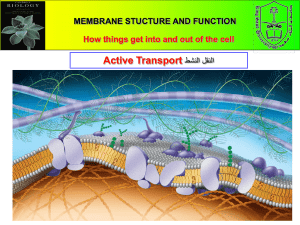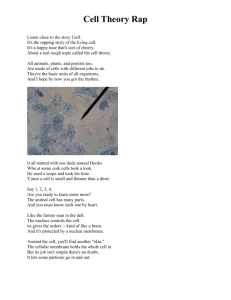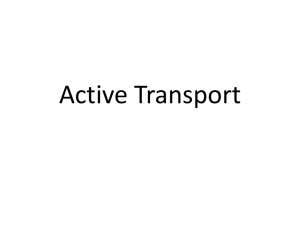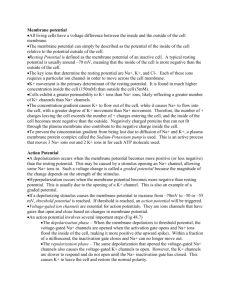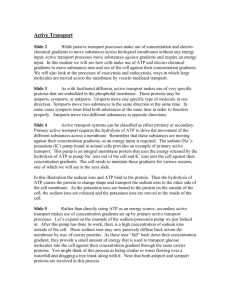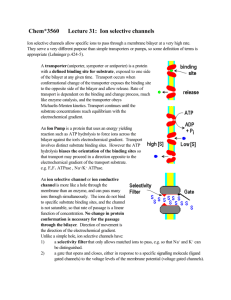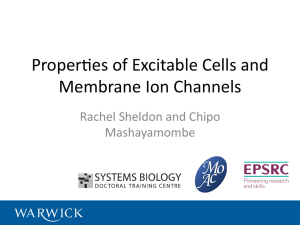Active Transport (Section 5-2) Answer Sheet
advertisement
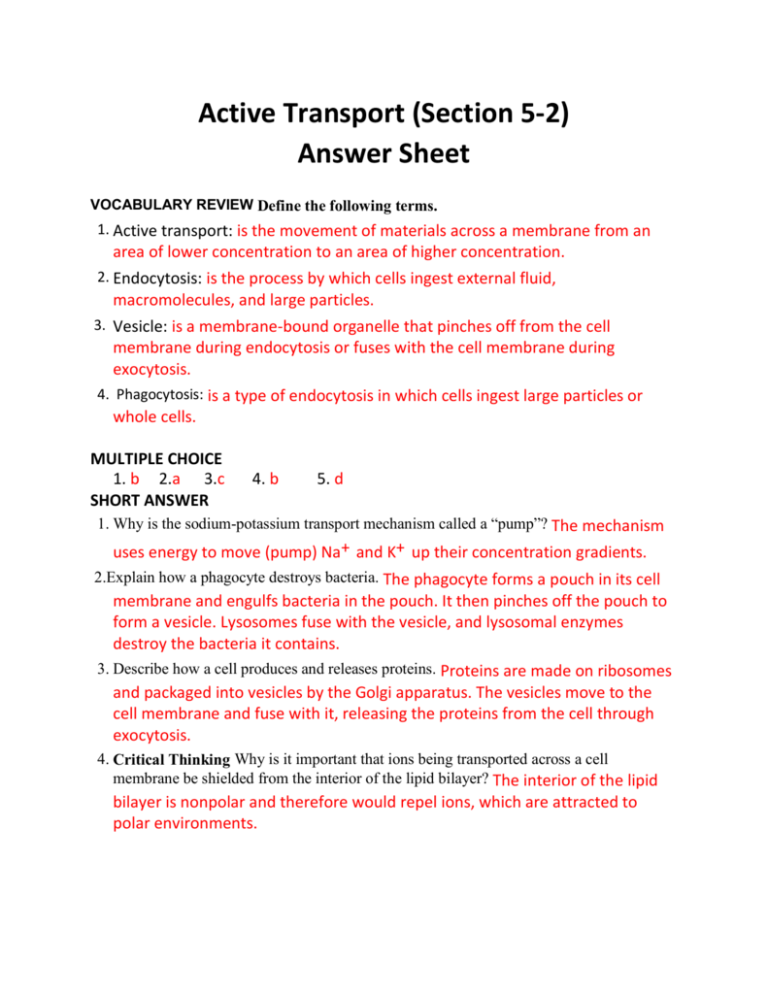
Active Transport (Section 5-2) Answer Sheet VOCABULARY REVIEW Define the following terms. 1. Active transport: is the movement of materials across a membrane from an area of lower concentration to an area of higher concentration. 2. Endocytosis: is the process by which cells ingest external fluid, macromolecules, and large particles. 3. Vesicle: is a membrane-bound organelle that pinches off from the cell membrane during endocytosis or fuses with the cell membrane during exocytosis. 4. Phagocytosis: is a type of endocytosis in which cells ingest large particles or whole cells. MULTIPLE CHOICE 1. b 2.a 3.c SHORT ANSWER 4. b 5. d 1. Why is the sodium-potassium transport mechanism called a “pump”? The mechanism uses energy to move (pump) Na+ and K+ up their concentration gradients. 2.Explain how a phagocyte destroys bacteria. The phagocyte forms a pouch in its cell membrane and engulfs bacteria in the pouch. It then pinches off the pouch to form a vesicle. Lysosomes fuse with the vesicle, and lysosomal enzymes destroy the bacteria it contains. 3. Describe how a cell produces and releases proteins. Proteins are made on ribosomes and packaged into vesicles by the Golgi apparatus. The vesicles move to the cell membrane and fuse with it, releasing the proteins from the cell through exocytosis. 4. Critical Thinking Why is it important that ions being transported across a cell membrane be shielded from the interior of the lipid bilayer? The interior of the lipid bilayer is nonpolar and therefore would repel ions, which are attracted to polar environments. STRUCTURES AND FUNCTIONS 2. On which side of the membrane are Na+ ions released from the pump? Na+ ions are released on the external side of the cell membrane. 3. On which side of the membrane are K+ ions released from the pump? K+ ions are released on the cytosolic side of the cell membrane. 5 4 2 6 3
